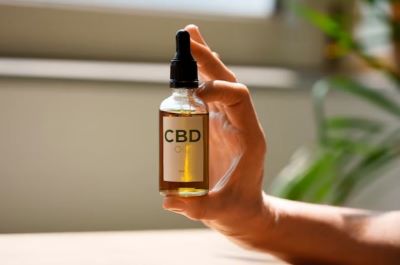The increasing acceptance and demand for cannabidiol (CBD) products across the globe have led to unprecedented growth in the CBD industry. One of the most effective methods to launch a brand in this competitive market is through white labeling. Essentially, CBD white labeling allows businesses to sell high-quality CBD products under their brand, without the need to invest in extensive product development or manufacturing processes. This article explores how businesses can build their brands by leveraging CBD white labeling for European consumers.
Brand Differentiation: Creating Unique Value Propositions and Brand Stories to Stand Out in the Market
In the ever-growing CBD market, brand differentiation is crucial. Businesses need to create unique value propositions and compelling brand stories to gain a competitive edge. CBD white labeling provides an excellent opportunity for businesses to do just that. By choosing to white label, businesses can focus on developing their brand’s unique identity, tailoring their marketing strategies to the specific needs and preferences of their target market, and creating a compelling narrative that resonates with consumers.
A brand’s value proposition should clearly articulate why consumers should choose their products over others. It should highlight the unique benefits and features of the brand’s CBD products, such as superior quality, organic ingredients, or rigorous third-party testing. With white labeling, businesses can ensure that their products meet the highest standards of quality and safety, giving them a solid foundation for a strong value proposition.
Moreover, a compelling brand story can significantly enhance a brand’s appeal. It can help to humanize the brand, forge a deeper emotional connection with consumers, and foster brand loyalty. With white labeling, businesses have the freedom to craft their brand story and position their brand in the market as per their vision. They can focus on their brand’s mission, values, and commitment to consumer wellbeing, which can be particularly impactful in the CBD industry, where consumers are often seeking natural and holistic wellness solutions.
Consumer Education: Providing Transparent Information and Educational Resources to Build Trust and Confidence
Consumer education is another crucial aspect of building a successful CBD brand. With the CBD industry being relatively new and often misunderstood, businesses need to dedicate significant resources to educating consumers about CBD – its benefits, usage, safety profile, etc. White labeling can greatly assist in this regard as it allows businesses to devote more time and resources to consumer education, while the manufacturing process is taken care of by the white label supplier.
Providing transparent information about the brand’s CBD products can help build trust and confidence among consumers. Businesses can share detailed product information, such as the source of the CBD, the extraction method used, and the results of third-party lab tests. They can also create educational resources, such as blogs, guides, and videos, to educate consumers about the potential benefits of CBD, how to use CBD products, and what to look for when buying CBD products.
In addition, businesses can leverage the expertise and knowledge of their white label supplier to provide accurate and reliable information. For instance, they can collaborate with their supplier to create informative content about the latest research and developments in the CBD industry. This can not only enhance the brand’s credibility but also help to dispel common misconceptions about CBD, thereby encouraging more consumers to try their products.
Customer Experience: Delivering Exceptional Service and Support to Enhance Brand Loyalty and Satisfaction
Delivering an exceptional customer experience is key to building a successful CBD brand. It involves providing excellent customer service, ensuring fast and reliable delivery, offering easy returns and refunds, and regularly seeking customer feedback to improve the brand’s products and services. Once again, white labeling can be of immense help in this regard.
By partnering with a reliable white label supplier, businesses can ensure that their CBD products are always in stock and delivered to consumers on time. They can also leverage the supplier’s established logistics and fulfillment processes to offer hassle-free returns and refunds. This can significantly enhance customer satisfaction and foster brand loyalty.
Moreover, white labeling allows businesses to focus on providing excellent customer service. They can invest in trained and knowledgeable customer service teams to assist consumers with their queries and concerns, offer personalized recommendations, and ensure a smooth and enjoyable shopping experience. They can also implement customer feedback systems to regularly gather and analyze customer feedback, thereby continually improving their products and services to meet consumer expectations.
Community Engagement: Building Relationships and Fostering Community Among CBD Consumers in Europe
Finally, community engagement is a powerful strategy for building a strong CBD brand. It involves building relationships with consumers, fostering a sense of community among them, and actively engaging them through various platforms and activities. Once again, white labeling can play a significant role in facilitating community engagement.
By allowing businesses to focus on their marketing and engagement strategies, white labeling can enable them to create a strong online presence and a vibrant community around their brand. Businesses can use social media, blogs, forums, and other digital platforms to engage with consumers, share valuable content, and foster conversations around CBD and wellness. They can also organize events, workshops, and other community activities to bring consumers together and strengthen their connection with the brand.
Moreover, businesses can leverage the insights and data provided by their white label supplier to better understand their consumers and tailor their engagement strategies accordingly. They can identify the needs, preferences, and behaviors of their consumers, and use this information to create more relevant and engaging content and activities.
In conclusion, CBD white labeling offers numerous advantages for businesses looking to build their brands in the European market. By leveraging white labeling, businesses can focus on differentiating their brand, educating consumers, enhancing the customer experience, and fostering community engagement, thereby establishing a strong and successful CBD brand. Visit https://yourcbdwhitelabel.eu/ to learn more about how CBD white labeling can help you build your brand.

